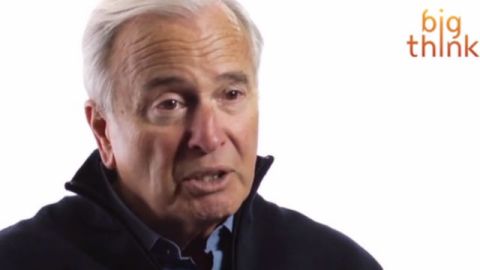In the Netflix Era, Who Pays for the Original Series That We Love?

With Amazon, YouTube, and Netflix disrupting traditional television with their hit original series, it’s critical for us binge-watching viewers for them to keep the hits coming. So how are the digitally-driven, nascent production companies paying for the creation of some of our favorite new shows? In our series “Decoding the Media,” The New Yorker’s Ken Auletta breaks down some of the numbers.
“Amazon, YouTube, and Netflix have three different models. They do original content but they [each] do it in a different way,” explains Auletta. “In Netflix’s case most of their content is not original. Only roughly two percent of their budget is ‘originals,’ but they’re increasingly spending more money.”
For “House of Cards,” Netflix made a 100 million dollar commitment for two seasons, and the company recently signed on for a third. Paying for that as well as the critically acclaimed “Orange is the New Black” is not cheap. Netflix subscribers currently pay $8 a month to access the site’s services, including watching original content.
“What Amazon has done is the different model,” says Auletta. “They basically said if you spend $79 a year to get free delivery of any Amazon product we will throw in free video. So you can watch movies or some of the original Gary Trudeau series they’ve just done.”
The monetization behind Amazon’s television model is following what the company did with Kindle. “They subsidize. They give things at a low price to you in order to get you into their store to buy other things. And they’ve been very successful,” says Auletta. “What YouTube does – still another model – they moved away from user generated content. But increasingly they’re trying to produce more professional content.”
Reed Hastings, the founder and C.E.O. of Netflix, predicts that within just a few years half of the television we watch will be delivered over the Internet, according to Auletta. Watching television on the web allows us to binge watch and it allows distributors to track the kind of shows that do well. The hope is that this helps companies like Netflix continue delivering addictive series, like “House of Cards.”
But going online for TV means being able to skip ads, Auletta points out.
To learn more about monetization models for this brave new online television world and the future of television, watch this clip from Auletta’s interview with Big Think:





